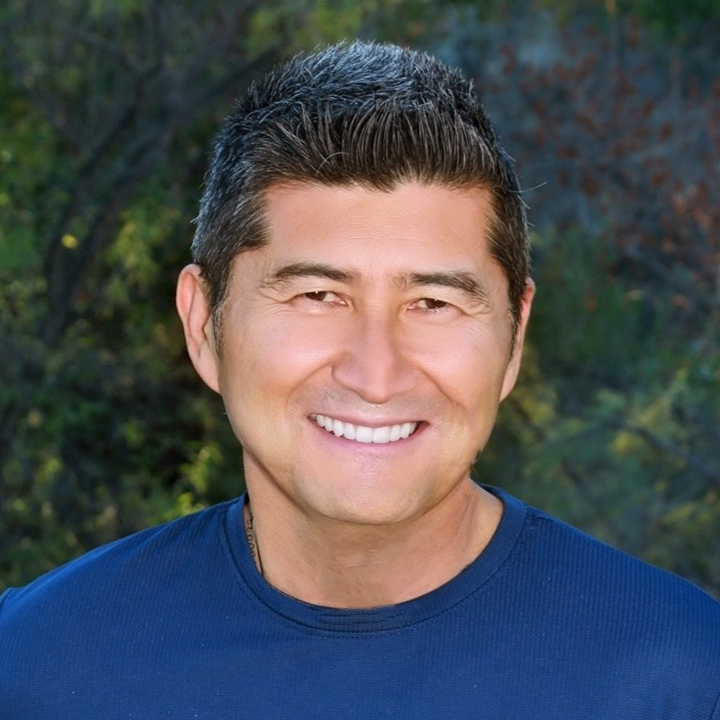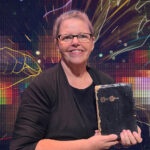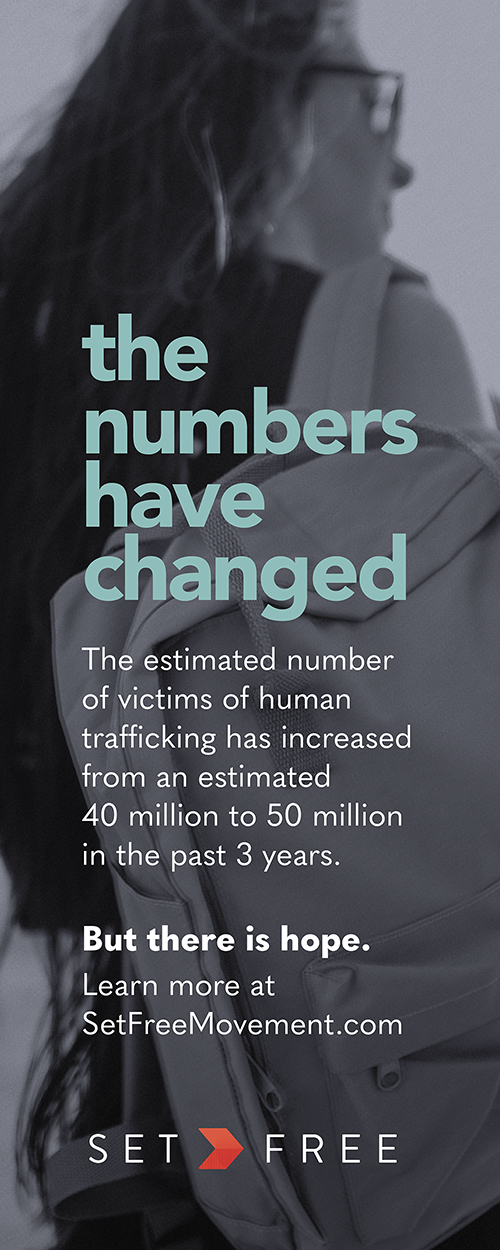
Mike Chong Perkinson
Mike Chong Perkinson is the lead pastor of The Lamb’s Fellowship in Lake Elsinore, California, and the president and dean of church and ministry at the Trivium Institute for Leader Development. He was born in Busan, South Korea, and was raised with an alcoholic father and a mother who was a devout Buddhist. After spending the first seven years of his life in South Korea, his family moved to the United States. He radically converted to Christ at age 13 and was called to the ministry shortly thereafter. He graduated from Bushnell University with a Bachelor of Arts degree in pastoral ministries and from Fuller Theological Seminary with a Master of Arts degree in historical theology.
By Mike Chong Perkinson
Content warning: This article contains multiple references to suicide. If you are experiencing suicidal thoughts and need to speak to someone immediately, you can call or text 988 for the 988 Suicide & Crisis Lifeline within the United States. (The lifeline is not affiliated with Light + Life or the Free Methodist Church USA.)
As a young pastor, I was filled with vision, passion, and hope and wanted to change the world in Orange County, California. God was showing up, and great things were happening — when one day after church a lady asked me something that broke my theological bank: “Pastor Mike, as a young girl I was sexually abused by my brothers and friends many times. I cried out to God to help me and to make it all stop, but they kept abusing me. Can you help me understand why God didn’t answer me? Because if I were a mom and my daughter was crying out for help, I would intervene. Why didn’t God intervene?”
I was emotionally and theologically shell-shocked in that moment. I mentally sifted through my theological file drawer of biblical responses and came up with nothing to say except the three words I never wanted to say (because I feared they were true). Nonetheless, mustering up the courage, I responded, “I don’t know.” As her eyes softened, the Spirit suddenly gave me utterance and, with great emotion, I said prophetically, “What I do know is that Jesus was abused and suffered, and He understands your pain, and I know He can heal you.”
That short and honest conversation led to a three-year healing journey of weekly meetings where we walked together into the pain of her life. To God’s glory, she walks in freedom today.
As my pastoral journey continued, so did the stories of darkness and pain. Suddenly I found myself walking with way too many people: My week was booked with 40 hours of counseling appointments with a waiting list six months long. What I did not expect to hear from so many Christ-followers was the depth of hopelessness that led many of them to contemplate suicide. These people and their stories left me deeply troubled and saddened; these once-hope-filled saints were so depleted that suicide felt like their only way out.
These three stories give insight to the brokenness of many of the people I sat with, hearing their dark struggles with the seductiveness of suicide:
- The successful 30-year-old pastor was distraught, struggling to find balance and hope while his heart was overwhelmed with a constant ache that confirmed his deepest fears. He sat with a 9mm pistol in his hand and placed it to his temple to pull the trigger, thoughts raging through his mind while the irrationality of suicide made complete sense in that moment as hell whispered that this was the best option to nullify the pain.
- The youth group was growing rapidly, and the youth pastor was sought out and enjoying the fruit of this vibrant and growing ministry. A 22-year-old young man of high passion, he found himself in the throes of great success mired by historic hurt from his childhood. That hurt led him to an abrupt decision to get in his car at 4:30 a.m. and race through the gears hitting high speeds, all so he could run his car into the nearest telephone pole to silence the pain screaming in his soul.
- Family dynamics had changed because the oldest son had come to Christ. The young teen was radically converted, followed soon after by his brother and mother. The three of them were enjoying new life and hope in Christ and trusting God that their dad would come back home one day saved. This young teen faithfully engaged in prayer, reading the Word, serving at the church, and sharing his faith. But, like so many teens it seems, he fell away from the faith at 16 and went hard after the things of this world. One very dark night, a dispute between him and his mom turned ugly. As anger turned to rage, this young man cursed his mother and blamed her for his father’s departure. He grabbed her by the shoulders, slammed her up against the refrigerator, and in a fit of fury grabbed a large kitchen knife. Face contorted, with barely controlled rage, he uttered these harrowing words to his mom: “I don’t want to be around you anymore. I’m done, and I’m ending it tonight. Here’s what I think of your love: I’m going to kill myself!” As he got in his car and slammed the door, he took the knife with both hands, blade facing his chest, with hell cheering him on and…
The fact that someone can arrive at such a desperate place is sadly tragic and alarming. What appears relatively common among people who die by suicide is an unshakeable feeling of dread, despair, loneliness, and hopelessness; it is all the more tragic to think of a blood-bought believer in this difficult place. Factor in the “oughts,” “shoulds,” and other condemning lies the kingdom of darkness offers, and, at best, you have someone’s life culminating in “soul murder” (killing one’s hopes and longings to prevent further pain) or, at worst, the taking of one’s life.
By the power of the Holy Spirit — supernaturally and amazingly — the teenage boy, youth pastor, and senior pastor did not fall prey to the distorted lie of suicide. In fact, they are all the same man writing this article for you now. I am no longer tormented or shamed by my past, have no fear of a future unraveling, and no longer agree with the lie that I would never belong! I live free in God’s grace with hope and a promised future!
_
“Pastoring and serving the idol of acceptance and admiration in the name of all that is holy was the greatest deception I fell prey to.”
_
No one would have known, outside of my wife, the darkness that visited me — the quiet torment I lived in, the profound sense of duty and obligation I felt, which championed the lie that my internal torment was all part of dying to the self for the sake of the other. After all, back then I believed a godly leader was best described by the words tired, busy, pulled in multiple directions, and serious about life (translation: without joy). Pastoring and serving the idol of acceptance and admiration in the name of all that is holy was the greatest deception I fell prey to.m
I have wrestled with my own demons and identity struggle as an Asian American who felt like I didn’t fit anywhere as I’m not quite Asian enough or American enough for either group to fully embrace (at least that was the distorted truth I believed). Compounded with this, emotional and mental health were not something generally addressed in my formative early years of faith — at least not by those in the circles I was in. After all, “old things have passed away, and we are new creations in Christ, so just leave your past at the cross and move on.”
True, but insufficient in practice; one may be able to leave a cognition at the altar but not a memory or experience. It seemed the remedy was generally “take two Scriptures before bed or anytime you feel bad, rebuke the lie, and silence the demonic in the authority of Christ and all will be better.” I did all of that religiously, yet I still felt like something was wrong. I prayed every day. I read the Bible a lot — 11 chapters of Scripture every day back then — so, why wasn’t it better? In spite of all of this, the context and environment of my heart was still ripe for emotional rot and decay; my undealt-with past was not in my past but was still informing my present. Echoing the fear-based sentiment of the 10 spies in Numbers 13, I joined the anthem of fear and sang harmony to “we seemed to ourselves like grasshoppers, and so we seemed to them” (Numbers 13:33 ESV).
_
“I was seduced by the lie of suicide.”
_
In this fertile soil of woundedness and pain, I was seduced by the lie of suicide — a strange rationality that makes you believe what you are about to do is the best thing for you and for everyone else. Tragically and demonically, this made sense to me. I felt it was my only option, so much so that I was willing to risk my eternity with logic that went something like “I’m already living in hell; I just want this pain to stop” — a sweet morsel of deception with a catastrophic outcome.
“Well, Mike, what stopped you all three times?” So glad you asked. Simply, God’s kindness and voice spoke to me all three times. My heart is saddened as I write this because I am sure God spoke too to those who unfortunately ended their lives, somehow ignoring His call to life. A bit of survivor guilt plagues me as I often wonder why I heard His voice and actually listened while others didn’t. The conclusion is not an easy one, but I do know that the only reason I am here is God’s loving kindness and faithfulness, paired with the prayers of those who loved and cared about me (though I was unaware of or didn’t value this at the time). For that I am so very grateful!
What stopped me all three times — I almost hesitate to say this for risk of being overly simplistic — was His presence. His loving, healing, calming presence somehow whispered so loudly, shouted so gently, and thundered so softly that it arrested me in those moments and stopped me in my tracks. No, I didn’t repent; I didn’t cry; I didn’t stop wanting to die. I just stopped what I was doing.
_
“He wept where I was weeping.”
_
In the years following my last attempt, I began to learn the source of all my sadness and darkness. I began a healing journey of walking through what I now call the “Gauntlet of Pain” — learning to fix my eyes on He who is Hope and, like Jesus, discovering the joy that was set before me. Because of this joy and hope, I learned to scorn the shame of what was and denounce the fear of what will be and instead trust He who is the “author and perfecter” of my faith. I learned to confront the abusers of my past and ultimately confront the primary abuser of my soul, hell and its minions. I have been learning to live in the freeing and redeeming power of the cross and the hope of triumphant peace as Romans declares: “The God of peace will soon crush Satan under your feet” (Romans 16:20 ESV). I am continuing to learn just how present God is; He wept where I was weeping.
As we move to a post-pandemic world, the scars and struggles of COVID still remain. I offer you a few practical takeaways as offensive measures to silence the seduction of suicide:
Give yourself and others the gift of presence.
Jesus came and lived among us, pitched His tent as one of us, walked with His flawed and passionate disciples, and revealed to us who the Father is and what a Son truly looks like walking in relationship with the Father. We are not the incarnation, but surely we can live incarnationally as we were created from relationship for relationship (Genesis 1:26-28). So give the gift of presence! Be a witness to someone’s life as you re-dignify, restore, re-humanize, and re-value the beautiful creation before you. Subjectify others (honor and value); don’t objectify them (dishonor and devalue)! The second commandment, laid alongside the first and equal to it, tells us to love others as we love ourselves. As you are present and give value and honor, hell and its minions will struggle to find a place because light always shatters the darkness. My late mentor of over 40 years did just that for me as he so wonderfully and faithfully incarnated the presence of Christ, showing me how a man of God lives in the saving joy of Christ.
_
“Shame is the power that pulls us into the past where we relive the failures of our former self.”
_
Confession precedes breakthrough; otherwise, you have breakdown.
Be an authentic and transparent leader, less concerned about how people see you and more concerned about people being able to see through the cracks of your life to gaze upon the treasure that reveals the surpassing power and healing love of God (2 Corinthians 4:7). As we confess our humanity and live vulnerably before people as earthenware vessels, it gives permission for others to come out of their religious trappings and confess their brokenness, fear, shame, and anxiety. After all, a broken and contrite heart God will not despise (Psalm 51:17). More simply, one cannot change what they won’t admit or own. The Bible tells us in James 5:16 that, if we confess our sins one to another and pray for each other, we will be healed. What a promise and what hope that brings us! Confession shatters the power of the unholy trinity of brokenness: shame, fear, and anxiety. Shame is the power that pulls us into the past where we relive the failures of our former self. Fear is the power that pulls us into the future where we pre-live the failures of our future self. Both of these are sealed together by anxiety, the bonding agent that seals us in the shame of our past while inflating our fear of the past repeating itself in the future. This anxiety is the basis of our internal struggle that keeps us tethered to the darkness while being children of the light. We break this power by confessing to another; there healing begins. Confess, be vulnerable, and lead the way for others to do the same.
Admit how you feel, embrace the pain, and rebuke the lie.
David said three times in two short Psalms (42 and 43), “Why are you cast down, O my soul, and why are you in turmoil within me? Hope in God; for I shall again praise Him, my salvation and my God.” For years I would utter the phrase, “Oh well,” which was shorthand for this Psalm. It was a way for me to acknowledge and confess that I was depressed, sad, or hurt, but it’s all going to work out. I was choosing to not only trust the promise but trust His process and His timing. The more I confessed it, the less power it had over me and the more God’s grace healed the ache of my soul.
_
“I remind myself that my victory is not predicated on my doing but on my trusting.”
_
Don’t “fake it until you make it.” Instead, “faith it because He made it.”
I stopped pretending that I was OK, and, at 33 years of age, suicide and its lies fell prey to the healing power of God. I no longer walk with this threat over me. Oh, the lies are still trying to find access to my soul, but I am quick to admit and own how I feel—to take it before the Lord, to share it with my wife and other trusted friends. I confess that, although I may be discouraged, I know it will all work out according to God’s marvelous and amazing will. I remind myself that my victory is not predicated on my doing but on my trusting—that is on whom I choose to place my trust. I am learning to have a Teflon heart when it comes to the lies of hell and a Velcro heart when it comes to what my Father says about me.
Choose to live in gratitude.
Focus on all that is good in your life (Philippians 4:8-9), thank God for it, celebrate it, and practice doing that every day. My late mentor awoke every morning and said in a sing-song voice, “Good morning, Lord” with full faith and anticipation of the glorious day that awaited him. He practiced gratitude. The old adage that practice makes perfect is so very wrong and condemning. Practice doesn’t make perfect; practice makes better. Whatever you practice, you become better at. So practice gratitude because in Christ, you will make it (Philippians 4:13); what God began in you He will complete. Believing the promise and trusting His process and timing will yield the “peaceful fruit of righteousness” and free you from being a plaything of circumstance as you become “like a tree planted by streams of water that yields its fruit in its season, and its leaf does not wither” (Psalm 1:3 ESV).
I am not completely healed today — nor am I suicidal. In Christ, I am healed and healing and one day will be fully healed. Until that day, I am a victorious mess, held together by His grace, sustained by His life, and alive because He died.
+

Mike Chong Perkinson
Mike Chong Perkinson is the lead pastor of The Lamb’s Fellowship in Lake Elsinore, California, and the president and dean of church and ministry at the Trivium Institute for Leader Development. He was born in Busan, South Korea, and was raised with an alcoholic father and a mother who was a devout Buddhist. After spending the first seven years of his life in South Korea, his family moved to the United States. He radically converted to Christ at age 13 and was called to the ministry shortly thereafter. He graduated from Bushnell University with a Bachelor of Arts degree in pastoral ministries and from Fuller Theological Seminary with a Master of Arts degree in historical theology.









